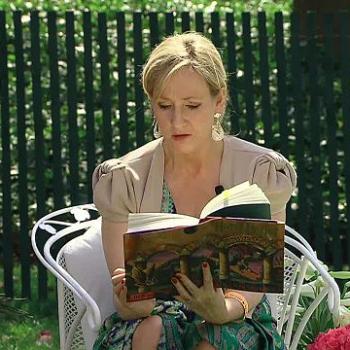Last week, I had some thoughts on SCOTUS’s gay “marriage” decision that seemed to strike a chord with a lot of readers. I was honored that New Testament professor Robert Gagnon shared it on his Facebook page. If that name doesn’t ring a bell, I recommend that anyone who wants to be encouraged by a thoughtful, biblical perspective on the issue seek out Gagnon’s writing. He strikes the perfect balance between meticulous scholarship and sharp-eyed observation of our culture.
In that post, I critiqued a few different conservative leaders who have thrown in their .02 on the decision. Today, I’m going to discuss a special joint response by two more speakers named Christopher Yuan and Rosaria Butterfield. Yuan and Butterfield have distinctive ministry platforms, based on their personal testimonies of being delivered from the homosexual lifestyle. While Yuan remains single, Butterfield has married and raised a family since her conversion. In their statement, they articulate a certain philosophy of marriage and singleness that dovetails with other comments I’ve heard Yuan make. In addition, they close with a parallel between pro-marriage and pro-life activism. While I have no essential doctrinal disagreements with either writer, I believe parts of their joint statement are simply wrong. Unfortunately, I have yet to see anybody offer a corrective to it. So I’m afraid that once again, it falls on me to rush in where Gospel Coalition pastors fear to tread.
One of Yuan and Butterfield’s central points is that the church has dropped the ball when it comes to welcoming single people. They imply that marriage has become something of an idol, while single people feel unhappy, incomplete or stunted in their communities. A fortiori, this affects Christians who struggle with homosexual desires and have no choice but to be celibate:
We have failed to show the LGBT community another option to marriage—which is singleness—lived out in the fruitful and full context of God’s community, the family of God. This does not mean, as Justice Kennedy wrote, that singles are “condemned to live in loneliness,” but that singles can have intimate and fulfilling relationships full of love. This is not a consolation prize. It can be just as rewarding and fulfilling as marriage.
In his own speaking, Yuan is careful to stress that he does not intend to downplay the beauty of marriage in making this argument. Rather, he wishes the Church could lift up both marriage and singleness as gifts and callings in their own right. There is absolutely nothing wrong with this idea, generally speaking. In general, it is good to encourage single people to find community and purpose. It is good to send them the message that life is not over simply because you haven’t found a soulmate. I have also heard Yuan observe, wisely, that even marriage is not a cure-all for loneliness. Loneliness is not just a “singles” thing, it’s a human thing, and all Christians must learn to respond to it.
However, Yuan and Butterfield’s particular application of these ideas is rhetorically worrying, and it leans overly much on a blurring of distinctions between heterosexual and homosexual single people.
Consider, for example, their assertion that singles can have “intimate and fulfilling relationships.” This truly is a unique challenge for the Christian who struggles with same-sex attraction. On the one hand, such a Christian will rightly believe that he cannot in fairness seek to get married. Moreover, men and women are fundamentally different and can’t communicate with the closeness and freedom same-sex friends share. This will present difficulties even if the usual awkwardness is diminished by a lack of attraction on one side of a heterosexual friendship. On the other hand, pursuing “intimate and fulfilling relationships” with the same gender has the potential to become sexually fraught despite everyone’s best intentions. Doctor Wesley Hill, another orthodox Christian who writes about his personal struggles with SSA, has admitted that he had to break off exactly that sort of relationship with a fellow male Christian.
This is not to downplay the importance of reclaiming friendship from a hyper-sexualized culture. Our society has become so obsessed with sex that even asexual same-sex friendships in literature and culture are gleefully mined for homoerotic undertones. Some “progressive” Bible scholars have even professed to read homosexuality into such famous relationships as David and Jonathan, Ruth and Naomi, or even Jesus and John. Yuan and Butterfield are both very good at smacking down this kind of nonsense, especially when it’s applied to the Bible.
However, the problem is that there isn’t an exact parallel here. Two men or two women will never be able to bond in a normal, unfettered way if one of them is homosexual. It’s sad, but true.
There is also the problem that in their eagerness to come alongside Christian singles with hopeful encouragement, Yuan and Butterfield may (ironically) be downplaying their pain. They stress more than once in this essay that singleness is not “crushingly lonely,” that this is a “lie” created by the church culture that we need to dispel. Or as Yuan put it in a talk, “I mean, are all you single people out there lonely and miserable? Wow, I hope not!”
To that I would say, “Miserable, no, probably not. Lonely, well, yeah.”
I admit that this is a very, very fine line to walk. On the one hand, I don’t believe we single people can quote Psalm 37:4 to ourselves like some magic charm and expect it to yield a spouse. As Matt Chandler humorously puts it, some churches have created a culture of single girls who are starting to pray, “I’m content God, now WHERE IS HE??” That’s offering false hope. On the other hand, Yuan and Butterfield are unintentionally offering a false hope of their own. Despite their protestations, it is simply true that there is a particular sadness and a particular loneliness to being single. Even, dare I say, a crushing loneliness at times. It is not an insuperable privation, but it is, nonetheless, a privation. And for the heterosexual single person, it is a privation of something God Himself declared good when he solved the problem of Adam’s loneliness by creating a woman. One can acknowledge this while also acknowledging that singleness may be used to glorify God and serve others. The desire for intimate companionship is an integral part of what it means to be human. There will always be a certain amount of pain that comes with that, and until we shuffle off this mortal coil, we will struggle to be as satisfied with God and God alone as we should be.
However, I cannot say that I am surprised to see celibate Christian homosexuals like Yuan or Wesley Hill making their case like this. Human beings naturally tend to make a virtue out of necessity. It is practically impossible to live in a less than optimal state for any long period of time without talking yourself out of the idea that it is less than optimal. There is also a certain strand of Reformed theology at work here that reinforces an aversion to grading sexual sins on a curve. This creates a tendency to downplay the natural view of heterosexual inclination as basically good and homosexual inclination as basically broken and tragic. Misguided attempts to put hetero and homosexually inclined single people on a parallel plane will follow as a matter of course.
And finally, I must take issue with this paragraph towards the end of the statement:
When pro-life people, made up of more than just evangelical Christians, began fighting less and caring more for unborn babies and for women with unplanned pregnancies just as they were, a shift in focus brought about an important change. So the question now stands: will we begin caring for the LGBT community just as they are?
Right away, the phrase “just as they are” raises a whole host of questions, all of which are conveniently evaded as the authors’ word count runs out. Even under the assumption that they would draw the line at affirming sin, or welcoming unrepentant homosexuals as official church members, a phrase like this is meaningless without specific examples and clear definition of terms. Define “care for.” Define “LGBT community.” Define “as they are.” Do the authors mean to imply that Christians are duty-bound to invited unsaved gay and lesbian couples into their homes, even if they have young families? Do they mean to imply that a man who believes himself “transgender” should be allowed to use the bathroom of his choice at the local church? Do they mean to imply that anyone who expresses concerns about shared living situations involving even celibate gays and lesbians is a bigot? And so on and so forth.
Furthermore, I have no idea what they think they mean when they refer to pro-life activists’ “fighting less.” Perhaps they need to do a bit more catch-up reading on the history of the pro-life movement. The truth is that the fight for legislative restrictions on abortion has run in absolute parallel with the rise of outreach ministries to pregnant women. These things are not mutually exclusive and never have been. Yes, on-the-ground tactics have been somewhat refined and updated as data comes in about their efficacy (e.g., marching with graphic pictures outside abortion clinics), but this is hardly the same thing as “fighting less.” “Important change” may be brought about in a variety of ways, including political activism. The recent expose of Planned Parenthood’s trafficking practices, which has been met with serious talk of defunding Planned Parenthood altogether, is a particularly stark example.
Let me close by saying that it is not my intention to derail Yuan’s or Butterfield’s ministries. I believe both of them are doing necessary work for the kingdom and have many valuable things to say. However, as iron sharpens iron, we must be unafraid to urge even our brethren in ministry towards truth and clarity. For a statement that is being circulated on this wide of a Christian platform, it needed to be sharper on both counts before going to press.













